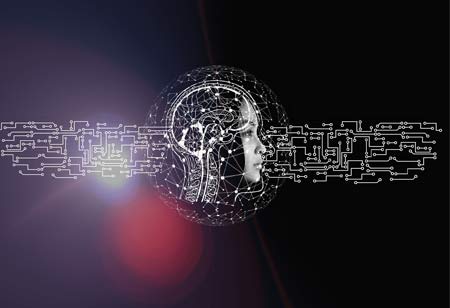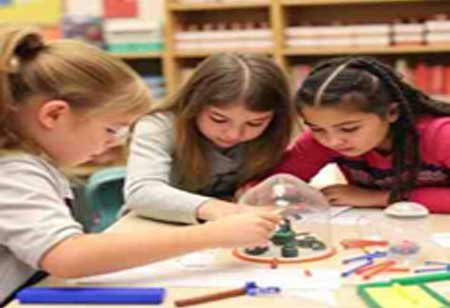THANK YOU FOR SUBSCRIBING
Be first to read the latest tech news, Industry Leader's Insights, and CIO interviews of medium and large enterprises exclusively from Education Technology Insights
Higher Education 2023: A Digital Transformation Odyssey
The landscape of higher education has undergone a profound transformation in recent years, driven by the integration of digital technologies into campus life.

By
Education Technology Insights | Wednesday, September 20, 2023
Stay ahead of the industry with exclusive feature stories on the top companies, expert insights and the latest news delivered straight to your inbox. Subscribe today.
In 2023, higher education will embrace a digital transformation with AI, VR, AR, digital twins, and the Metaverse. This revolution empowers innovative learning and prepares students for the future job market.
FREMONT, CA: The landscape of higher education has undergone a profound transformation in recent years, driven by the integration of digital technologies into campus life. What was once considered a luxury has become an absolute necessity for institutions worldwide. This shift is not limited to affluent colleges and universities; it has become a universal imperative, poised to revolutionise hybrid learning environments and shape the future of higher education.
The lightning-fast adoption of technology during the tumultuous years of the COVID-19 pandemic was more than just an emergency response; it marked a paradigm shift in the world of education. Educational institutions globally have been meticulously crafting strategies for a tribrid educational model, merging the traditional, virtual, and experiential.
Global Market Insights forecasts that the e-Learning market will exceed an astonishing $1 trillion by 2028. At the forefront of this educational renaissance is the higher education technology sector, armed with cutting-edge tools such as artificial intelligence (AI), virtual reality (VR), augmented reality (AR), digital twins, and the metaverse.
Forecasts indicate that global digital spending on education will surpass $350 billion by 2025. These investments encompass a rich tapestry of technological marvels, including gamification, blockchain, chatbots, and the Internet of Things (IoT). Cloud-based technologies are also on the rise, bolstering student relationship management (CRM), learning management systems (LMS), and assessment management.
What's particularly striking is that a staggering 86 per cent of educators are now staunch advocates for the paramount role of technology in shaping future generations. The competencies acquired through these technological innovations will equip graduates to navigate the complex job landscape of tomorrow.
AI is rapidly transforming the landscape of higher education, with forecasts projecting its market size to reach an astonishing $17.83 billion by 2027. This growth is underpinned by AI's capacity to automate various tasks within academic institutions, including invigilation, grading, and library services. However, to harness its full potential, the seamless integration of AI into educational curricula is paramount. AI's impact extends beyond administrative efficiency, as it also revolutionises the learning experience by tailoring content and support to individual students.
Virtual and augmented reality (VAR) technologies, encompassing mixed and extended reality (MR/XR), are ushering in a new era of immersive learning. These technologies transcend traditional boundaries by facilitating sophisticated simulations and training across diverse fields like medicine, engineering, and veterinary medicine. The result is an interactive and experiential learning environment that blurs the line between the physical and virtual worlds.
The emergence of digital twins offers an intriguing alternative to conventional remote learning. Digital twins, rooted in the principles of digital replication and simulation, have ushered in a paradigm shift in the educational landscape. They enable the creation of virtual, dynamic replicas of physical entities, such as machines, systems, or even entire environments, allowing learners to engage with realistic, interactive, and immersive learning experiences. This novel approach fosters deeper comprehension, critical thinking, and problem-solving skills. Moreover, digital twins facilitate remote collaboration, as students and instructors can interact synchronously or asynchronously within the virtual world.
The Metaverse, an enticing frontier, holds the promise of an entire virtual world where students and faculty can engage, interact, and learn remotely. This concept transcends geographical boundaries and enhances collaboration, creativity, and exploration. It provides a unique space for both learning and social interaction, potentially revolutionising the way education is delivered.
The success of IoT in higher education hinges on the robustness of a 5G network. This technology promises seamless connectivity for students, administrators, faculty, and all connected devices on campus. IoT creates a smart and automated ecosystem within educational institutions, enhancing safety, efficiency, and sustainability.
Blockchain technology is set to transform the secure storage of critical student records and other essential data, with an anticipated growth rate of 85.9 per cent over the next decade. It offers transparency, data integrity, and immutability, revolutionising credential verification and academic records management.
Cloud computing, particularly in the form of cloud-based services, continues to expand relentlessly in higher education. It provides boundless virtual libraries and serves as the foundation for managing extensive video content and intricate 3D modelling. The cloud offers scalability, accessibility, and robust data security to meet the diverse needs of higher education institutions.
Gamification, while not a new concept, remains a captivating educational approach. It transforms complex subjects into enjoyable learning experiences, elevating student engagement to new heights by leveraging game elements to motivate and reward learners.
Chatbots, empowered by various AI techniques such as natural language processing (NLP), Automatic Speech Recognition, Data Mining, Machine Learning, and Sentiment Analysis, play a pivotal role in higher education. They not only answer inquiries regarding lesson plans, assignments, and deadlines but also contribute significantly to student retention, admission processes, career services, and mental health support. Future endeavours are exploring the integration of pedagogical chatbots aimed at enriching students' engagement levels.
In 2023, higher education is entering a new era, poised for a sweeping digital transformation. These technological marvels are not mere trends; they represent the building blocks of a brighter educational future. They empower students to thrive in a world driven by technology and innovation. The integration of contemporary technologies is reshaping the landscape of higher education, offering boundless opportunities for both educators and learners. This digital revolution is not just a necessity but a journey towards a more inclusive, dynamic, and personalised higher education system.







